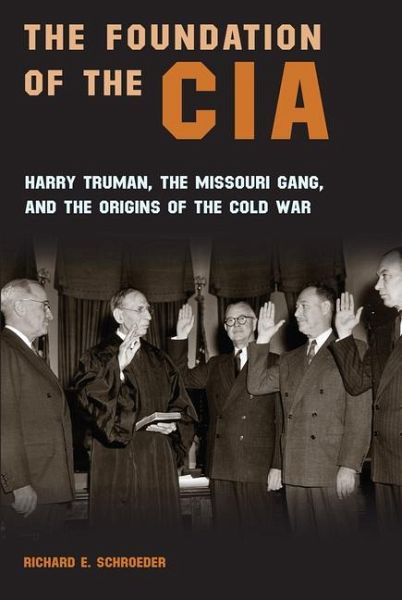
The Foundation of the CIA: Harry Truman, the Missouri Gang, and the Origins of the Cold War Volume 1

PAYBACK Punkte
11 °P sammeln!
"A fresh perspective on American National Intelligence practice, focusing on the first fifty years of the twentieth century, when the United States took on the responsibilities of a global superpower during the first years of the Cold War. Late to the art of intelligence, the United States during World War II created a new model of combining intelligence collection and analytic functions into a single organization, the OSS. At the end of the war, President Harry Truman and a small group of advisors developed a new, centralized agency directly subordinate to and responsible to the President, de...
"A fresh perspective on American National Intelligence practice, focusing on the first fifty years of the twentieth century, when the United States took on the responsibilities of a global superpower during the first years of the Cold War. Late to the art of intelligence, the United States during World War II created a new model of combining intelligence collection and analytic functions into a single organization, the OSS. At the end of the war, President Harry Truman and a small group of advisors developed a new, centralized agency directly subordinate to and responsible to the President, despite entrenched institutional resistance. Instrumental to the creation of the CIA was a group known colloquially as the 'Missouri Gang,' which included not only President Truman, but equally determined fellow Missourians Clark Clifford, Sidney Souers, and Roscoe Hillenkoetter"













